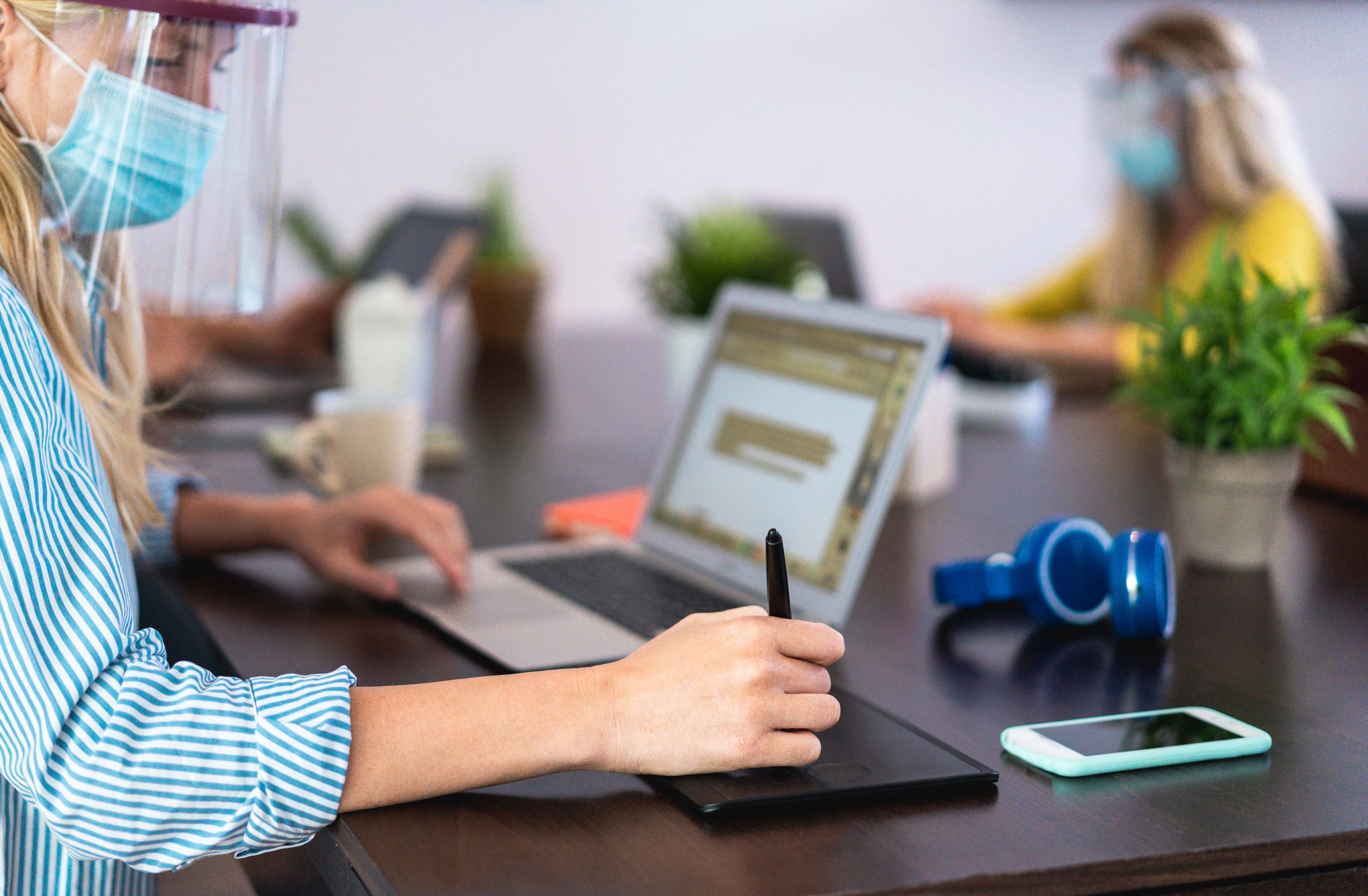General Physician | 5 min read
Changes to Expect In Your Workplace Post Lockdown
Medically reviewed by
Table of Content
Key Takeaways
- Traditional office is now a thing of the past
- Most meetings, collaborations, and professional events will go digital and you won’t have as many physical meetings
- Being aware of these beforehand is important to psychologically preparing for the shift back from remote work
It’s only a matter of time before workplaces are reopened, but the traditional office is now a thing of the past. With social distancing, safety, and overall well-being being of utmost importance to both employees and employers, organisations must now ensure that the new workplace meets the need of the hour. This means less clutter, stringent sanitation protocols, smaller active workforces and more provisions and practices like these.

Work culture changes are also something you can expect as many old practices like the briefing meeting may now become completely or partially digital. While there is some degree of uncertainty with regards to the extent of change in your office, certain differences are inevitable. For many, a different workspace may evoke mixed emotions, especially if you are unaware. To avoid this and prepare for what’s to come, here’s a few change you should expect in your workplace post lockdown.
Smaller workforce
With how contagious and potentially deadly this virus is, organisations will not request the full workforce to return to the office at once. In fact, most companies may only request a handful of employees to work in the office while the rest can continue to work remotely. This is because maximum office occupancy isn’t ideal or recommended and so, such a practice is likely to be put into effect.
Moreover, for companies that do need the workforce in the office, staff rotation protocols are likely to be implemented. This means employees will be requested to work in shifts, wherein only a certain percentage of the workforce is present at the office at any given time. This promotes employee safety without compromising on productivity.
Carpooling to work
Resuming office means travel and many may not enjoy the luxury of a private vehicle. Given how infectious this virus is, public transport isn’t recommended and to ensure that all employees get to work safely, companies may employ a carpooling solution. These could be company vehicles with strict guidelines on occupancy to ferry employees to and from work.
Such an amenity is highly beneficial as organisations can control sanitation of these vehicles, thereby restricting exposure of its employees. Other such options also include B2B tie-ups with vehicle rental service providers to give employees a private mode of transport. These and many more such provisions can protect employees coming into work as they won’t be required to rely on public transport.
Strict sanitation and prevention protocols
The most noticeable and prominent change you will notice at any workplace is the presence and mandatory usage of personal protective equipment (PPE). This includes:
- Disposable gloves
- Face masks
- Face shields
- Isolation gowns
- Disposable respirators
Depending on the industry, different PPE will be made mandatory, but you can expect very strict infection prevention protocols to be put in place. This will also include several checkpoints at various levels of the workspace with thermal checks to ensure the highest level of safety. In addition to that, many organisations are also limiting the maximum occupancy in elevators. This encourages the use of staircases or will require you to wait in line to use the elevators.
To ensure complete safety, organisations may also ensure that every workstation is thoroughly sanitised at frequent intervals. Besides this, air filtration equipment will also be upgraded to provide for cleaner air with proper ventilation to avoid any airborne infection. Lastly, you should expect to be constantly reminded to sanitise your hands.
Social distancing protocols
Social distancing is the best way to avoid infection and so, you should expect these protocols to be upheld very strictly at the office. Companies will most likely redesign the work floor to allow employees to maintain this distance without any inconveniences. Additionally, you may also find markings or signposts to help you get to different areas of the office while maintaining the required distance from other.
As a rule, you will be required to bring your own hand towels, cutlery and other such personal items to avoid sharing as much as possible. To ensure the 6-feet distance is maintained, you may also find marked areas on the ground at specific points such as the cafeteria, washrooms, desks, etc. Also, you may not be required to travel for work purposes unless absolutely necessary.
Remote interactions
Remote work shouldn’t come as a surprise to many and this is set to continue even when you return to the office. Most meetings, collaborations, and professional events will go digital and you won’t have as many physical meetings as before. While this has its limitations, it is the best way to protect employees from unnecessary contact within the workplace. However, when the need arises, meetings and other such event will be conducted by following strict social distancing and safety protocols.
These are just a few of the many changes to expect as office begin to reopen. Being aware of these beforehand is important to psychologically preparing for the shift back from remote work. For many, working at home provided a sense of safety and going back to the office can be a troubling thought. But, with a clear idea of how safe organisations will have to be to operate, you can make the transition smoother. Additionally, organisations will have to maintain a directory of healthcare centres that are authorised to handle any outbreaks.
References
- https://www.livemint.com/companies/news/bike-sharing-carpooling-may-be-the-norm-for-commuters-as-offices-open-up-11590503051463.html
- https://blog.vantagecircle.com/prepare-organization-for-post-lockdown-period/
Disclaimer
Please note that this article is solely meant for informational purposes and Bajaj Finserv Health Limited (“BFHL”) does not shoulder any responsibility of the views/advice/information expressed/given by the writer/reviewer/originator. This article should not be considered as a substitute for any medical advice, diagnosis or treatment. Always consult with your trusted physician/qualified healthcare professional to evaluate your medical condition. The above article has been reviewed by a qualified doctor and BFHL is not responsible for any damages for any information or services provided by any third party.





